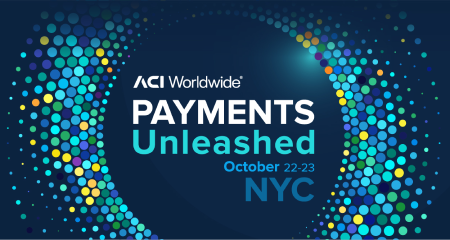ACI has been working in close collaboration with PayNet (the entity created to deliver RPP, co-owned by Bank Negara and member banks) to establish a foundation for technological innovation that will address the changing needs of the Malaysian payments ecosystem.
Effective collaboration between central payments infrastructure, banks and financial institutions, and global technology providers such as ACI will be essential if 2019 is to become the year that a cashless society starts to come into view. Based on the following factors, I believe that it will.
The critical role of central infrastructure
Central infrastructures – in this case PayNet – provide a common space for all participants in the ecosystem, including banks, institutions, businesses, consumers and the government, which in turn helps to build consensus on how to build out solid digital commerce ecosystems across the country. But while it is possible to predict short-term needs and deliver functionality, over a longer timeframe it is very difficult. Vendor selection and initial implementation can be time consuming, so it really is paramount to have agility at the core of the platform that a central infrastructure is based upon. Agility and responsiveness are needed to keep pace with developments and to service both the central infrastructure and member banks – something that ACI delivers for PayNet.
DuitNow is opening the door to digital payments
As of December 2018, millions of Malaysians had already registered for DuitNow to receive funds using their mobile number and MyKad numbers. In early January 2019, the service was available to the public through 14 local and foreign banks, with an additional 17 financial institutions set to follow soon. DuitNow aims to supplant cash with simple and convenient internet and mobile payments based on immediate 24×7 funds availability. Adoption of DuitNow will serve to increase awareness around digital payments and highlight the potential of further e-payments initiatives.
RPP will start to impact the wider economy
A study by the European Central Bank in 2012 found that countries with high usage of cash and cheques incurred an annual retail payment cost of up to 1.43% of gross domestic product (GDP), whereas countries with high adoption of electronic payments incurred an annual retail payment cost as low as 0.42% of GDP. Shifting from paper-based to electronic payments could save a country up to 1% of GDP – a clear indication of the value of payments modernization on the wider economy.
Real-time payments will be the cornerstone of wider payments modernization
Instant payment capabilities are seen as a key driver in payments modernization in the wider ASEAN region, serving as the first step towards digital transformation across consumer and corporate services. In the future, we may realize the potential of cross-border, multi-currency real-time payments. Malaysia’s progress positions it to play a leading role as payments corridors develop with neighbors and key economic partners. A modernized e-payment infrastructure will in turn facilitate Malaysia’s ability to spur global trade, which will drive economic growth for the nation and makethe country more competitive in an increasingly interconnected world.
The successful launch of DuitNow sets the stage for a range of new services
The initial launch of the RPP platform with DuitNow as a critical new piece of national infrastructure required complex and extensive testing. Now that the platform is live, ACI is working with PayNet on migrating existing legacy e-IBFT system to RPP, as well as introducing new services including PayNet QR, e-Mandates, Request-to-Pay and Real-time Debit.
Representatives from ACI, PayNet, and the Malaysian member banks that are signed up to RPP (many of which ACI also works with directly) recently gathered in Kuala Lumpur to celebrate the successful launch of DuitNow. Although the reason for being there was the success we have already achieved together, what was inspiring was the shared enthusiasm for what lies ahead in 2019.
Leslie Choo with PayNet CEO Peter Schiesser at the Customer Appreciation Event in January 2019.
Learn how real-time payments will impact your business model as a national infrastructure provider. Download the eBook, “Building the Foundations of a Real-Time World: The task for national infrastructure in payments. Get More From Real-Time“




